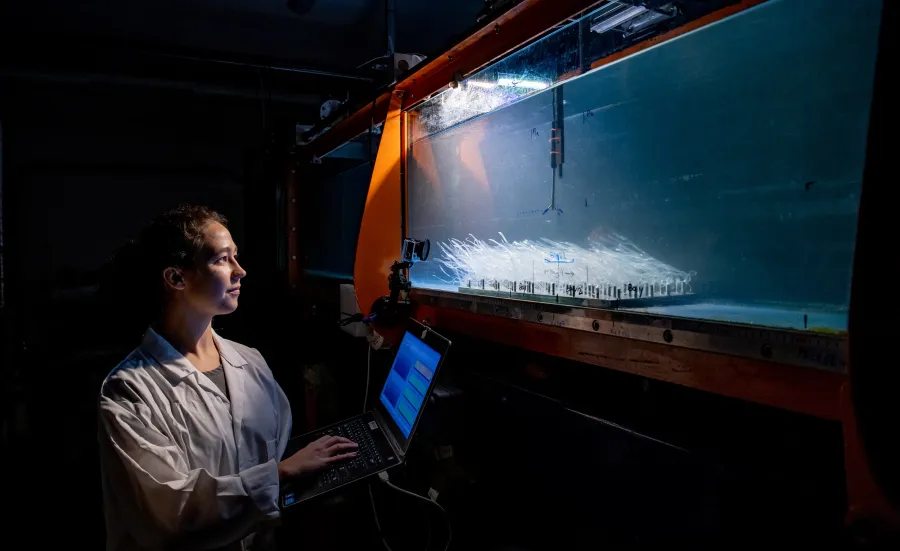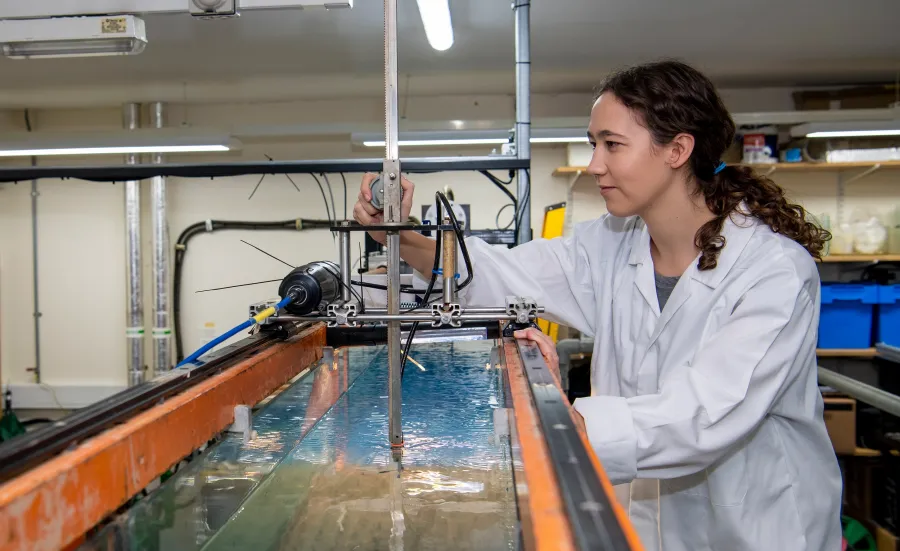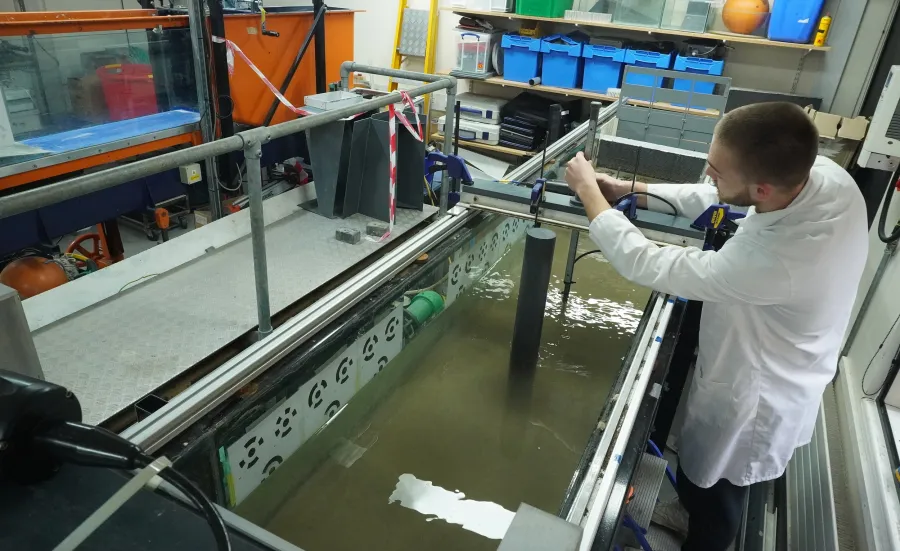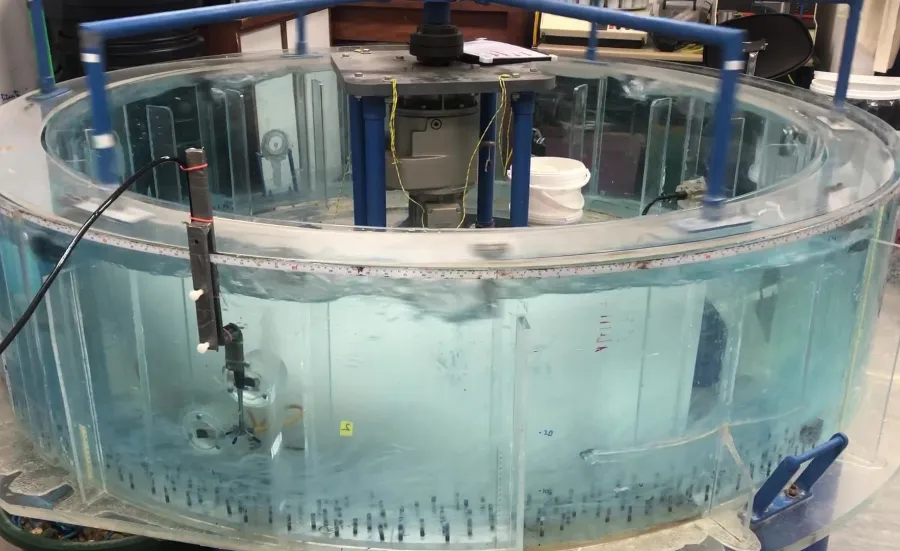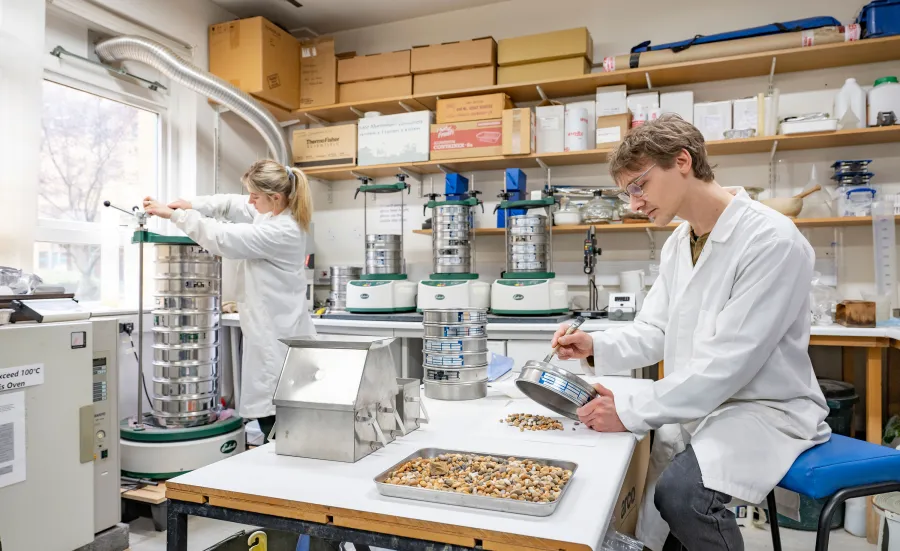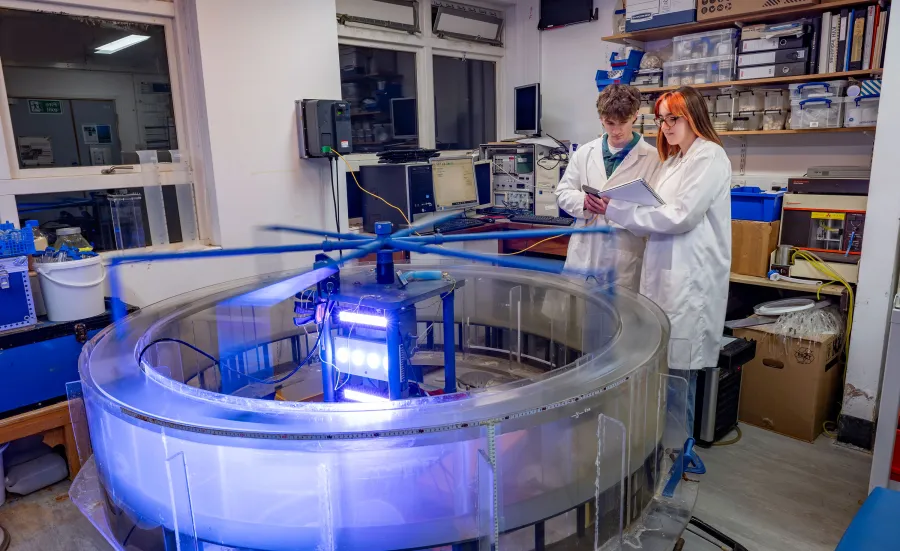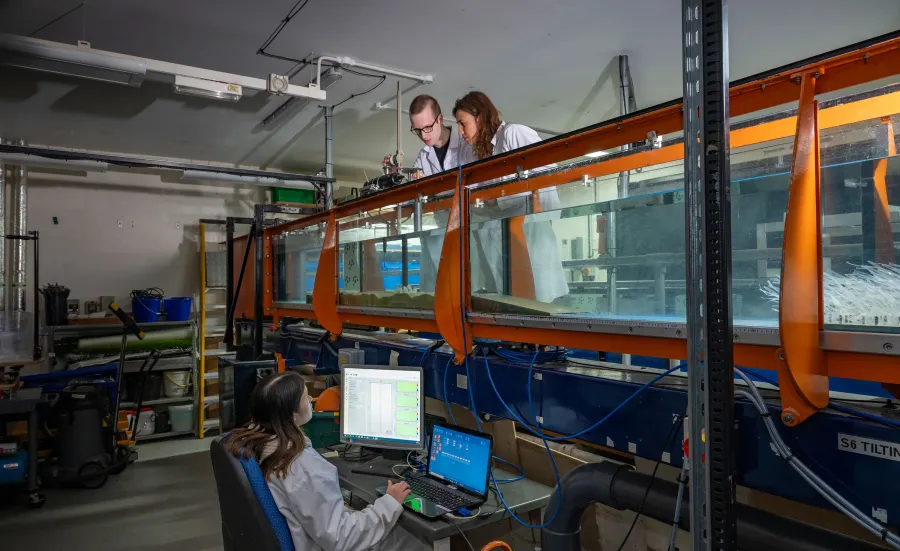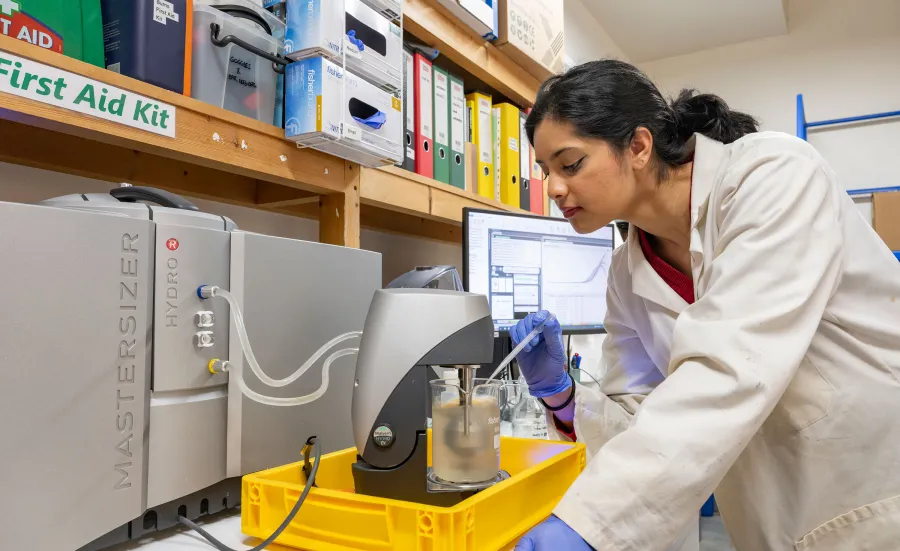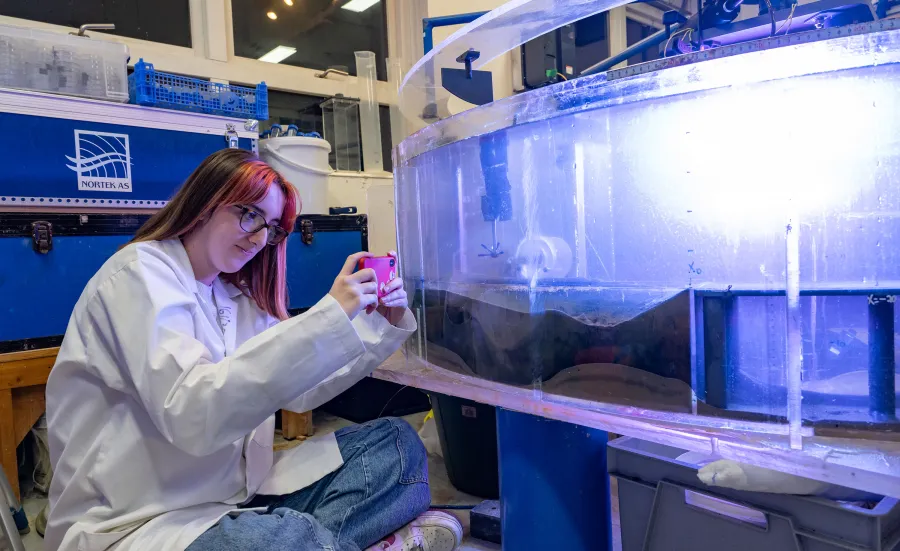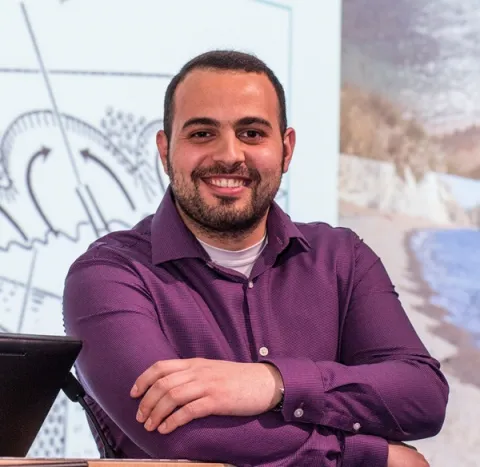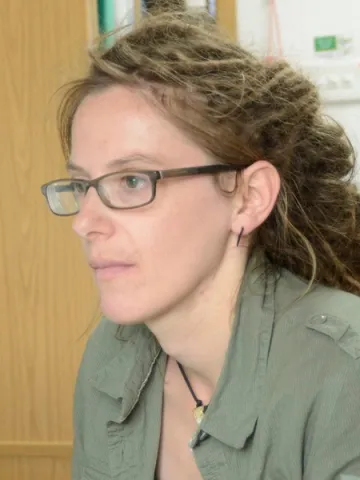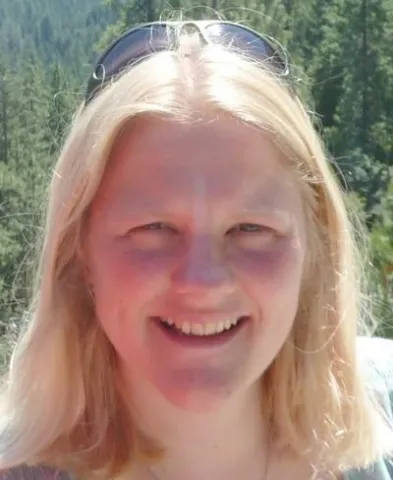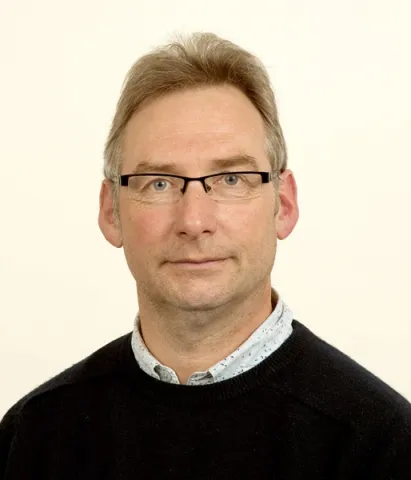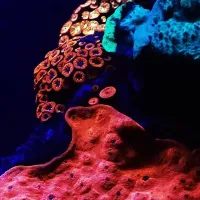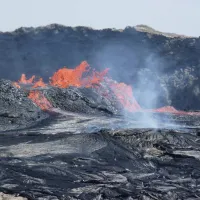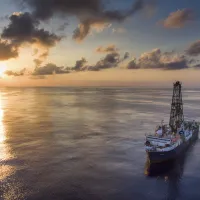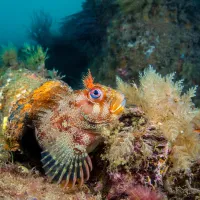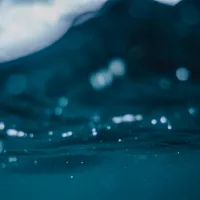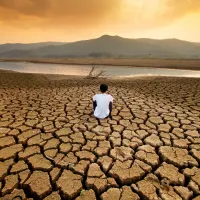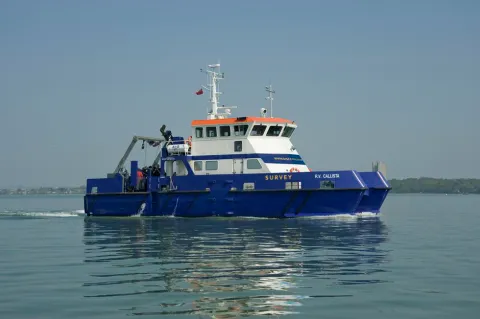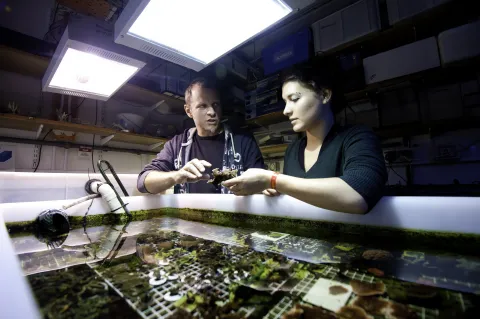About the Coastal Research Laboratories
The Coastal Research Laboratories are dedicated to the study of coastal, estuarine and shelf sea hydrodynamics and sediment transport, and interactions between flow, sediment, ecosystems and infrastructure. The labs, and associated field instrumentation, support teaching, research and enterprise activities.
Our Sediment Analysis Laboratory is equipped with a range of tools to analyse cohesive and granular (non-cohesive) sediment, describe sediment textural properties and particle size distributions, and assess fundamental geotechnical properties of soils or sediment samples.
The Coastal Processes Laboratory hosts a unique set of custom-built, computer-controlled laboratory, in-situ and benthic annular flumes, and is home to the Lab Carousel Annular Flume, a saltwater mesocosm used to examine cohesive and non-cohesive sediment dynamics and seabed stability, and study interactions between flow and bio-mediated substrates with living aquatic flora and fauna (e.g. seagrasses, saltmarshes, bivalves, etc.); as well as biogeochemical processes across the seabed-water column interface.
The Sediment Dynamics Laboratory hosts an Armfield S6 recirculating, tilting flume used to study flow and boundary layer dynamics, turbulence and drag over rough boundaries, including mobile sediment, flexible elements/vegetation mimics and rigid structures. The lab also houses a bi-directional scour basin used to study sediment transport and scour evolution around (partially or fully) submerged structures including offshore foundations, submarine cables/pipelines, eco-reefs and archaeological artefacts; and a range of micro-modelling and demonstration wave tanks, racetrack flumes, and geophysical flow basins using in teaching and outreach activities.
Our Coastal Labs Field Equipment include a range of standalone and live-logging instruments, sensors and platforms available for lab and field deployments in shallow waters.
Highlights
- state of the art equipment for characterisation of cohesive and non-cohesive sediments
- unique range of annular flumes as saltwater mesocosms for studying flow-sediment-biota interactions
